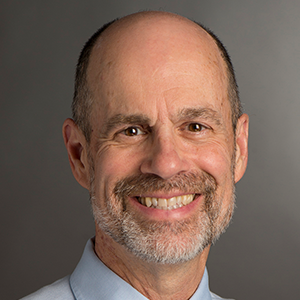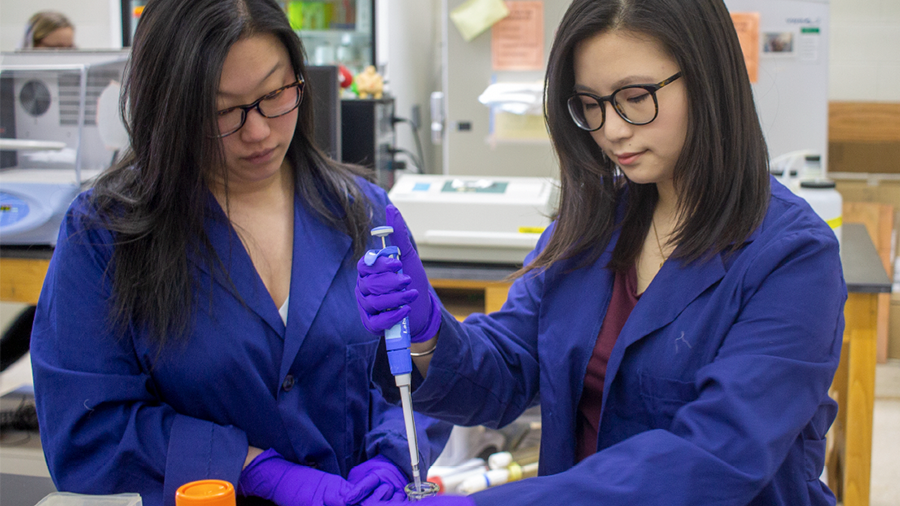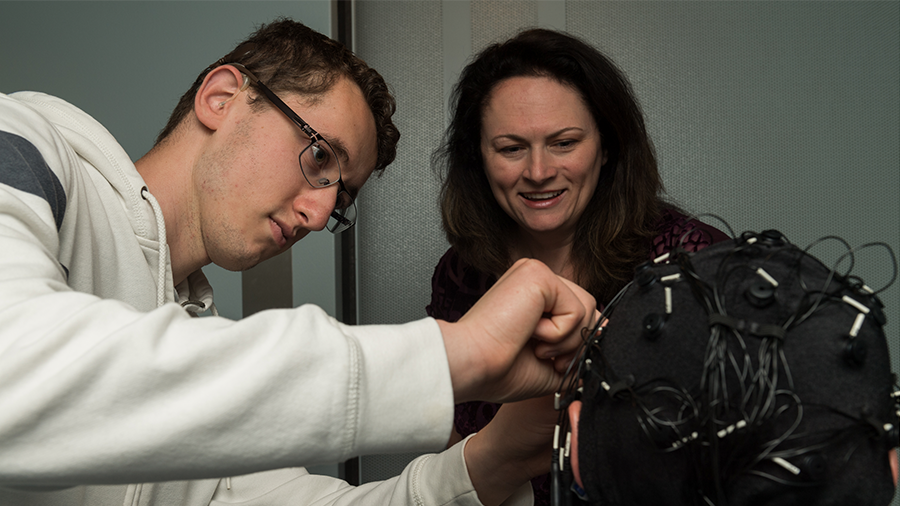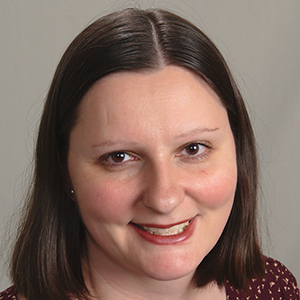Study: Cultural competence key in mentoring deaf and hard of hearing undergrads
Researchers at the Rochester Institute of Technology will present results today stemming from a series of studies about relationships between undergraduate students who are deaf and hard of hearing and their hearing mentors and peers.

Paul Craig, a professor at RIT’s School of Chemistry and Materials Science, will present the team’s findings, which were based on questionnaires, surveys and focus groups, at the annual meeting of the American Society for Biochemistry and Molecular Biology held in conjunction with the Experimental Biology conference in Philadelphia. During his poster presentation, Craig will discuss a number of best practices that will enable the mentors and peers to create an inclusive research lab.
“One of the best ways that we can help our D/HH students is to become culturally competent mentors — learning the attitudes, behaviors and values of the D/HH culture and seeking to understand our D/HH students by observing and asking questions for clarification when we are confused,” Craig said.

Undergraduate students who are deaf and hard of hearing, or D/HH, often are overlooked in STEM, Craig said, and the scientific community should place a stronger emphasis on supporting them, because they bring value to the research enterprise.
D/HH students often require accommodations through a university’s disability office to have access to scientific discourse and may navigate scientific communities differently due to systemic barriers.
Craig is on the leadership team for the RIT–RISE program (short for RIT Scientists-in-Training Research Initiative for Scientific Enhancement of Deaf and Hard-of-Hearing Undergraduates), which is funded by the National Institute of General Medical Sciences. The program provides intensive training to D/HH undergraduates who wish to become Ph.D. scientists in biomedical, biobehavioral or clinical research fields.
With RIT–RISE Director Vincent Samar, Craig will present research conducted by RIT–RISE team members Jason Listman, Kim Kurz and Amanda Picioli (from the RIT National Technical Institute of the Deaf at RIT) that used interviews, surveys and focus groups to examine best practices to optimize communication access specifically in research environments for D/HH STEM students.

The team’s findings point to possible strategies for optimizing experiences for these students and more generally creating accessible and inclusive laboratory environments.Craig said that there are many simple steps mentors and others can take, such as:
- Make sure that people speak in turn in meetings.
- Ask for clarification at any time in a conversation or meeting.
- Make sure meeting spaces are well lit and have low background noise.
- Have clear lines of sight for everyone and provide full access to captioning or sign language interpreting.
“Perhaps the greatest lesson for me is the diversity of communication preferences in the deaf and hard of hearing community and that these preferences can change in any given situation. For example, a research student may prefer interpreted American Sign Language in a one-on-one conversation and captioning in a research team meeting,” said Craig, who previously won the ASBMB’s education award for his work with undergraduates.
Paul Craig will present this research between 12:30 and 1:45 p.m. Monday, April 4, in Exhibit/Poster Hall A–B, Pennsylvania Convention Center (Poster Board Number A524) (abstract).
Enjoy reading ASBMB Today?
Become a member to receive the print edition four times a year and the digital edition monthly.
Learn moreGet the latest from ASBMB Today
Enter your email address, and we’ll send you a weekly email with recent articles, interviews and more.
Latest in Science
Science highlights or most popular articles

From humble beginnings to unlocking lysosomal secrets
Monther Abu–Remaileh will receive the ASBMB’s 2026 Walter A. Shaw Young Investigator Award in Lipid Research at the ASBMB Annual Meeting, March 7-10 in Washington, D.C.

Chemistry meets biology to thwart parasites
Margaret Phillips will receive the Alice and C. C. Wang Award in Molecular Parasitology at the ASBMB Annual Meeting, March 7-10 in Washington, D.C.

ASBMB announces 2026 JBC/Tabor awardees
The seven awardees are first authors of outstanding papers published in 2025 in the Journal of Biological Chemistry.

Missing lipid shrinks heart and lowers exercise capacity
Researchers uncovered the essential role of PLAAT1 in maintaining heart cardiolipin, mitochondrial function and energy metabolism, linking this enzyme to exercise capacity and potential cardiovascular disease pathways.

Decoding how bacteria flip host’s molecular switches
Kim Orth will receive the Earl and Thressa Stadtman Distinguished Scientists Award at the ASBMB Annual Meeting, March 7–10, just outside of Washington, D.C.

Defining JNKs: Targets for drug discovery
Roger Davis will receive the Bert and Natalie Vallee Award in Biomedical Science at the ASBMB Annual Meeting, March 7–10, just outside of Washington, D.C.

